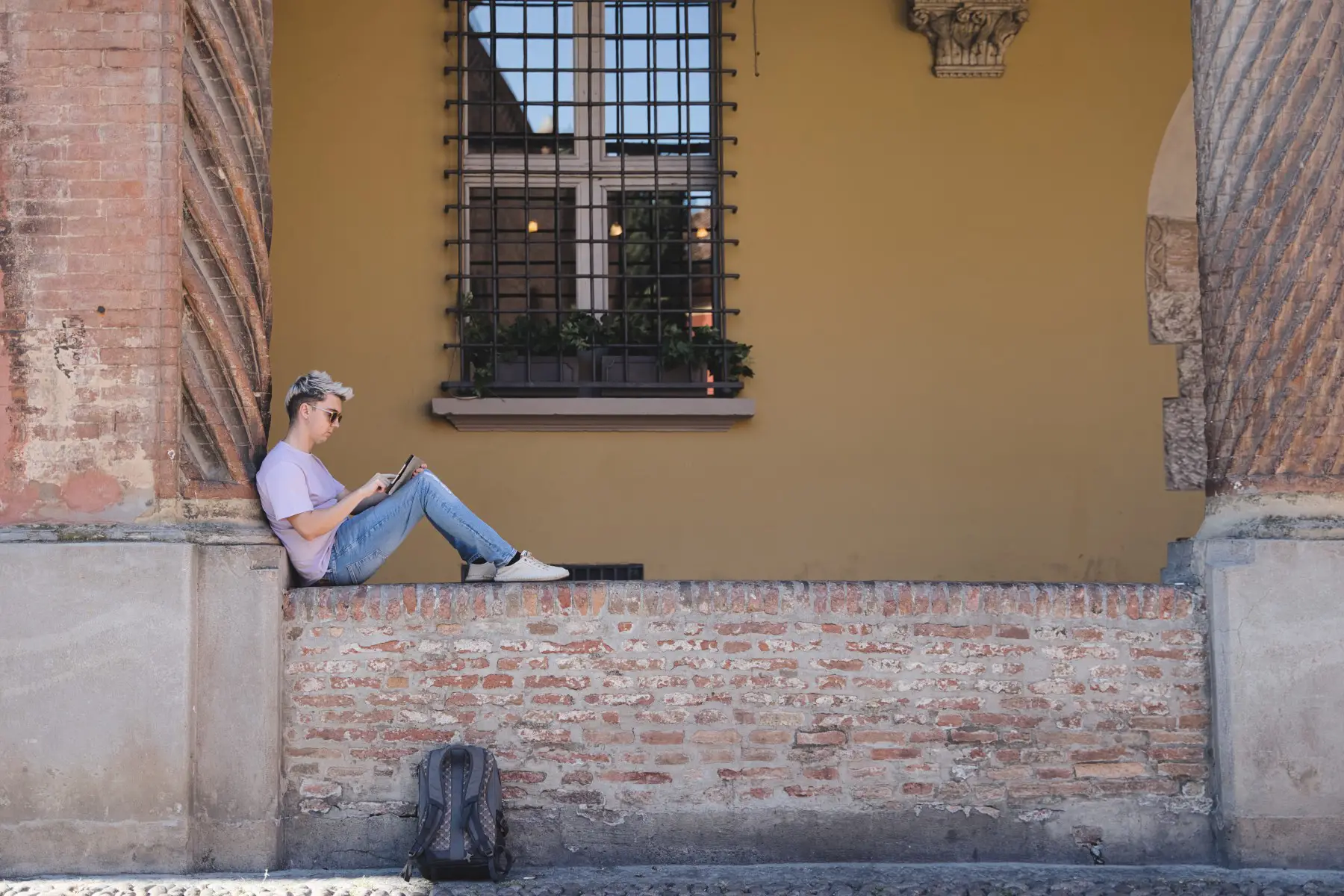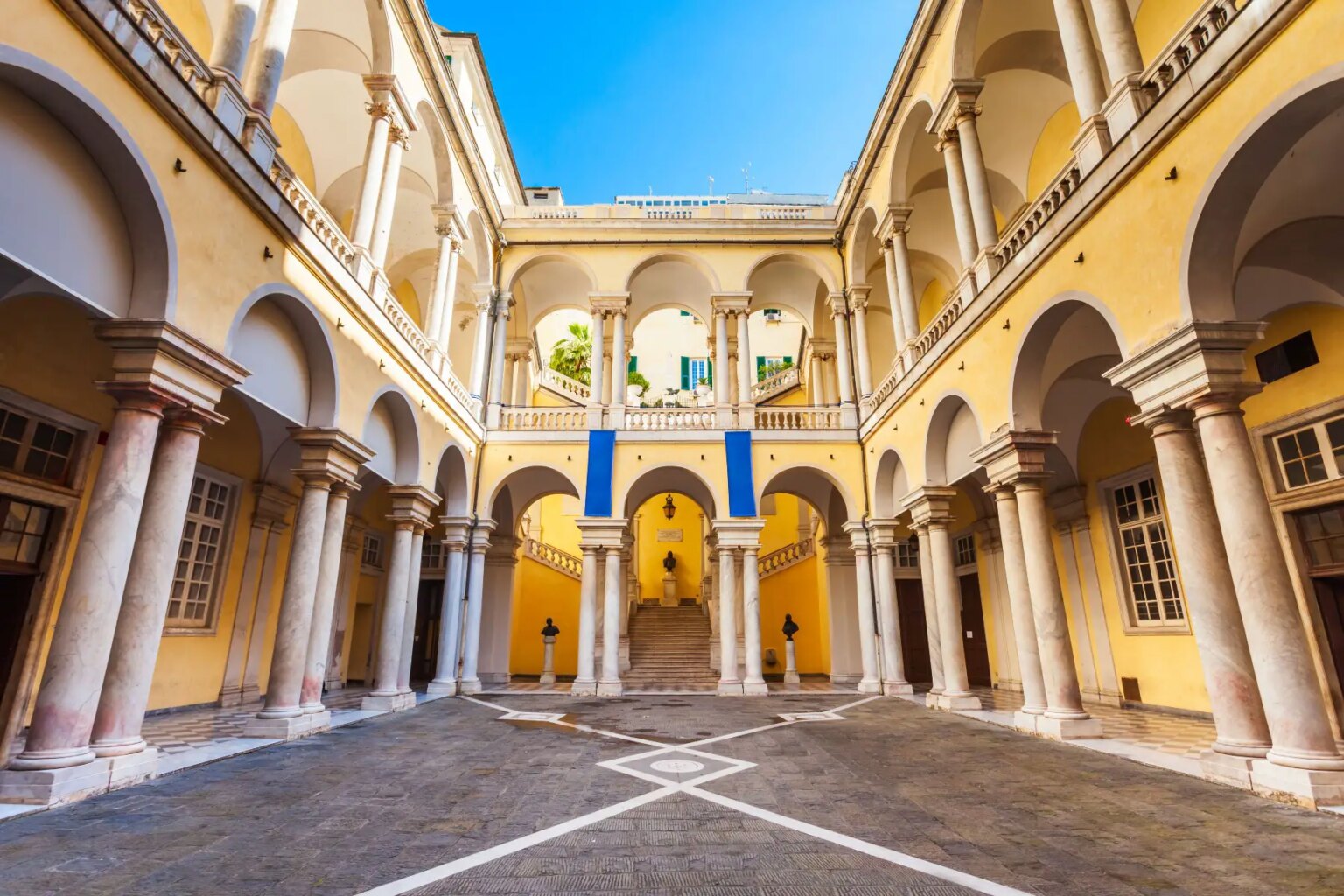With a rich and varied culture, warm climate, and world-famous cuisine, it’s not surprising that many internationals are interested in studying in Italy. Whether you want to earn a title or take an Italian language course, you might need to apply for a study visa (visto di studio) before you can set off to the country.
From requirements and applications to expiries and refusals, discover the ins and outs of student visas in Italy:
- Studying in Italy
- Who needs a visa to study in Italy?
- Types of student visas
- Short-stay student visas
- Long-stay student visas
- When you arrive to study in Italy
- Italian study grants and scholarships
- Transferring foreign qualifications
- Working at a job while studying in Italy
- Joining family members on a student visa
- After graduating and your visa expires
- Appeals and complaints about student visas
- Useful resources
Studying in Italy
If you’re looking to study abroad, Italy is a great contender. The country has 25 universities in the 2023 Times Higher Education World University Rankings, including the world’s oldest still-running university (the University of Bologna, founded in 1088). Plus, two of its major cities, Milan (Milano) and Rome (Roma), feature among the QS Best Student Cities 2023.

Studying in Italy is relatively low-cost, with public universities charging around €1,000 to €2,000 a year. As such, it is quite affordable for international students, especially when budgeting for living costs. In 2020, 2.9% of university students were from outside of Italy, with just over 96,000 international students (studenti stranieri) having been enrolled in a study program.
Like many other European Union (EU) countries, Italy has a two-tier immigration system. Citizens from the EU/EFTA (European Free Trade Association – Iceland, Liechtenstein, Norway, and Switzerland) can easily travel and relocate to Italy with minimal requirements. Expats from outside those regions usually need a visa or permit.
The Ministry of the Interior (Ministero dell’Interno) is the office responsible for all visas and immigration, including student visas.
Who needs a visa to study in Italy?
EU/EFTA nationals do not need a student visa to study in Italy. Rather, they need a valid passport or ID. Depending on the duration of their stay, they must also either:
- Report to the local police headquarters (questura)
- Enter the civil registry (anagrafica) with the local municipality (comune)
Third-country citizens from outside the EU/EFTA regions, including those from the United Kingdom (UK), do need to apply for a study visa before coming to Italy. The length of their stay determines what steps are required next.
There are some exceptions for expat residents looking to do a short course, like an Italian language class. Nationals from over 60 countries – including Australia, Canada, Japan, the United Kingdom (UK), and the United States (US) – don’t need a visa if they’re staying for less than 90 days. If these nationals are staying for longer, they must apply for a visa.
Types of student visas
There are two categories of student visas in Italy.

These are:
- Short-stay visas: also called Schengen type C visas, for short visits of up to 90 days within any 180-day period
- Long-stay visas: also known as Schengen type D visas, for stays that last longer than 90 days (i.e., three months)
Short-stay student visas
Third-country nationals looking to do a short course, program, class, or training can apply for a Schengen type C visa. Border control officials will stamp their passport as proof of entry.
EU/EFTA citizens do not need a visa, however, they must make their presence known to the local police within eight days of their arrival. They can do so by filling out this approved form.
Visa length
Short-stay visas are valid for 90 days within any 180-day period. You can travel across the Schengen Area – including France, Greece, Croatia, Portugal, and Spain – as long as you keep to those 90 days.
You cannot extend a Type C visas unless under special circumstances. If you’d like to stay in Italy for longer, you can apply for a long-stay visa.
Requirements
The main condition for getting a short-stay study visa is being accepted into a course by a registered educational program. Other requirements include:
- Completed visa application form
- One passport photo
- Valid passport with an expiry date of at least three months beyond your departure date
- Proof of enrolment
- Proof of qualifications for the course
- Proof of accommodation (e.g., hotel reservation)
- Proof of return flight
- Proof of sufficient income
- Health insurance to cover your trip
How to apply
You can submit a visa application at the Italian embassy or consulate in your home country or any other Schengen Area country. Alternatively, you can apply at any worldwide visa application center contracted by Italy.

The visa usually takes up to 15 days to process but could take longer. That’s why it’s advisable to apply a month or two in advance.
Visa costs
Short-stay visas usually cost €80. Students from Armenia, Azerbaijan, and Russia pay only €35. In some cases, you are exempt from paying fees. For example, when you are a:
- Relative of an EU/EEA resident (European Economic Area – Iceland, Liechtenstein, and Norway)
- School pupil, student, postgraduate student, or accompanying teacher on a school or study trip
Long-stay student visas
If you want to come to Italy for more than 90 days, you can apply for a Schengen type D visa. In addition to the generic study visa (i.e., for undergraduate, postgraduate, or student exchange programs), there are two subcategories:
Again, EU/EFTA students do not require a visa. However, they must enter the civil registry with their local municipality.
Third-country nationals need a study visa and must apply for a residence permit (permesso di soggiorno) within eight days of arrival. They can do so at:
- Unique Immigration Desks (Sportello Unico per l’Immigrazione – SUI) in the provincial prefecture (prefettura)
- Selected municipalities
- Selected patronage institutes (patronati)
- Selected local post offices (uffici postale)
- Local police headquarters
The residence permit will be valid for one year and renewable if you attend a multi-year study course. Note that the permit can only be renewed for up to three years beyond the duration of the program (e.g., if you fail to graduate).
Visa length
Long-stay student visas in Italy are usually valid for one year.

If you are pursuing a multi-year degree, you do not have to renew your visa. Instead, your residence permit gives you permission to stay for the duration of your study program. The permit also expires after a year, and you do need to renew it.
Requirements
The primary condition for long-stay student visas is enrolment in a program that is:
- At least 20 hours per week/80 hours per month
- Longer than three months
- Accredited by the Italian Ministry of Education and Merit (Ministero dell’Istruzione e del Merito – MIUR)
There are no specific language conditions for the visa itself. However, resident permits that are valid for a year or more require you to learn Italian to at least A2 level Italian.
Other visa requirements include:
- Completed visa application form (in Italian)
- One passport photo
- Valid passport
- Proof of enrolment or contract (e.g., internship agreement)
- Proof of qualifications for the course/training
- Proof of accommodation (e.g., rental contract)
- Proof of sufficient income
- Health insurance to cover your trip
How to apply
The application process is the same as for short-stay visas. You can apply through the Italian embassy or consulate in your home country or any other Schengen country. Alternatively, you can go to a worldwide visa application center contracted by the Italian immigration authorities.
The visa application usually takes up to 15 days to process but it can take as long as 60 days. It’s therefore recommended to apply with well ahead of time.
Visa costs
The long-stay student visa costs €50, plus the fees of a residence permit fees.

The additional fees include over €76 for the application and between €40 and €50 for the residence permit.
When you arrive to study in Italy
After making your presence known and getting a residence permit, things on your to-do list might include the following:
- Registering for public healthcare – this is not compulsory but could come in handy when you don’t have private health insurance to cover your stay
- Applying for an Italian tax number – you’ll need this for carrying out a range of financial transactions in Italy
- Opening up a bank account
- Getting an Italian SIM card
If you are renting a house or room, you might also need to set up utilities and internet in case your landlord does not provide it.
Depending on the validity of your residence permit, you must sign the country’s Integration Agreement (accordo di integrazione). It requires you to learn Italian to at least A2 level and get familiarized with things like the Italian constitution.
Italian study grants and scholarships
If you need help covering your education costs, there are numerous funding options available in Italy. This includes grants, scholarships, student loans, fee waivers, and help with accommodation and living costs.
Resources include:
- Government grants through the ministries of MIUR and Foreign Affairs and International Cooperation (Ministero degli Affari Esteri e della Cooperazione Internazionale – MAECI)
- Funding through the 20 regional authorities of Italy (e.g., DSU Toscana)
- Grants through foreign governments and institutions
- University scholarships through individual institutions
- EU funding through the Erasmus+ program
Transferring foreign qualifications
Foreign educational or professional qualifications have no legal value in Italy except when covered by national and international law. For example, Italy is part of the Bologna Process that standardizes educational qualifications across Europe.

To get foreign titles, professional skills, and educational qualifications recognized, you can go through the Academic Equivalence Mobility Information Center (Centro di Informazione sulla Mobilità e le Equivalenze Accademiche – CIMEA).
Working at a job while studying in Italy
International students don’t need a separate work permit to take up a part-time job. You are allowed to work for a maximum of 1,040 hours per year. This translates to roughly 20 hours per week.
There are generally no restrictions on the type of work you are allowed to do. However, you can only work in a self-employed or freelance capacity, if you convert your visa.
Joining family members on a student visa
Students staying in Italy for at least a year can invite selected family members to move to Italy as well, including:
- A spouse or registered partner
- Minor children under the age of 18
- Dependent children over the age of 18
- Dependent parents over the age of 65
Your relatives will get a family visa (visto per motivi familiari), which is usually valid for the same duration as your study visa.
To qualify, you must first apply for entry clearance (nulla osta) for ‘following family members’ (familiare al seguito) or ‘family reunification’ (ricongiungimento familiare). You can do so at the SUI of your provincial prefecture.
After obtaining the clearance, your relative can apply for a visa at the Italian embassy or consulate in their home country.
After graduating and your visa expires
Once your student visa expires, there are a couple of ways to stay in Italy.

Your options include:
- Extending your study visa by continuing your studies (e.g., pursuing a master’s degree)
- Switching to a work-based residence permit by taking a job in Italy
- Applying for a new one-year residence permit for pending employment (permesso di soggiorno per attesa occupazione) and looking for work or starting a business
- Getting married or having a civil ceremony with your Italian partner
Remember that you will need to meet the requirements, including:
- Securing the minimum required monthly finances
- Getting a valid job offer
- Having sufficient health insurance
You can extend or exchange your permit through the same methods as applying for a new one.
Appeals and complaints about student visas
If your student visa application is denied, you will receive the decision with the reason for the refusal. You can provide additional documentation and ask your embassy or consulate to reconsider.
If they still refuse the visa, you have 60 days to file an appeal with the Regional Administrative Court (Tribunali Amministrativi Regionali – TAR) in Italy. However, this can be expensive as you typically have to pay legal fees.
Useful resources
- Immigration Portal (Portale Immigrazione) – official source of information on residence permits
- Ministry of the Interior – the Italian government ministry responsible for immigration, visas, and residence permits
- MAECI – has lots of information on Italian visas, including a visa search portal
- State police website (Polizia di Stato) – official source of information for internationals on entry and residence
- Uni-Italia – government website assisting international students in Italy
- Universitaly – university portal of the Ministry of Education (Ministero dell’Università e della Ricerc, MUR)





